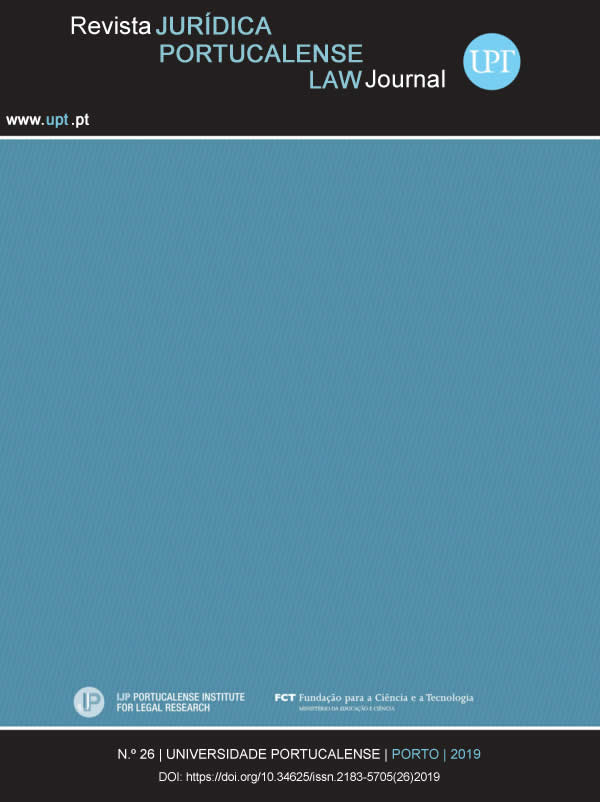Measures to protect de facto unions
Abstract
The objective was to compile the scattered laws that deal with the subject in order to better understand and use the legislative tool related to the subject. There are numerous laws and judicial decisions governing de facto or stable unions. The compilation will provide access to arguments, fundamentals and decisions and, in a way, will give greater confidence to the operator of the law. Collected information on scattered laws, codified articles and judicial decisions that demonstrate that the search for solutions should be done with a more protective look at the lives of families and people who have chosen to live in a stable union; we must follow the evolution of societies and adapt and solve them. In Brazil, the Federal Supreme Court and the National Justice Council have made the greatest contributions to the advancement in this regard. Much of the foreign legislation that already brings in its constitutional bulge the equality we discuss here. The application of these measures would solve, because if we recognize that a union constitutes a family unit there are no reasons that justify a contrary position. When cohabitants are effectively accepted in the same way as married couples, we will have a pacification of the subject and greater legal certainty in the decisions that are made.
References
CAHALI, Yussef Said. Dos Alimentos. 6ª ed. ver. E ampl. - São Paulo, Ed. RT, 2009; ISBN 978-85-203-3478-2.
CARVALHO, Ana Bela Luna de. relat. – Acórdão do Tribunal da Relação do Porto com o número 38/11.2 TBVCD.P1, de 29 de Outubro de 2012. [Em linha]. [Consult. 13 Ago. 2018]. Disponível em http://www.dgsi.pt/jtrp.nsf/56a6e7121657f91e80257cda00381fdf/24675ec60c54a47580257ab5005015a7?OpenDocument&Highlight=0,PROCESSO,38%2F11.2
DINIZ, Maria Helena. Curso de direito civil brasileiro: direito de família – 15ª. ed. rev. – v.5. – São Paulo: Saraiva, 2000; ISBN 85-02-02018-8
LOPES, Geraldo Evangelista. Da legalidade do decreto prisional por dívida de alimentos. Possibilidade de prisão quando devedor de menos de três parcelas. In: Âmbito Jurídico, Rio Grande, XXI, n. 171, abr. 2018. [Em linha]. [Consult. 23 Out. 2018]. Disponível em: http://www.ambito-juridico.com.br/site/index.php?n_link=revista_artigos_leitura&artigo_id=20361&revista_caderno=14.
MADALENO, Rolf. A Desconsideração Judicial da Pessoa Jurídica e da Interposta Pessoa Física no Direito de Família e no Direito das Sucessões – Rio de Janeiro: Ed. Forense, 2009 – ISBN 978-85-309-2818-6.
MALUF, Adriana Caldas do Rego Freitas Dabus – Novas modalidades de família na pós-modernidade. São Paulo: Universidade de São Paulo, 2010. 348 f. Tese de Doutoramento em Direito.
MONTEIRO, Washington de Barros. Curso de direito civil: direito de família – 32ª. ed. rev. – v.2. – São Paulo: Saraiva, 1995; ISBN 85-02-01683-0.
NOVAIS, Jorge Reis. Os princípios constitucionais estruturantes da república portuguesa. – Reimp. – Coimbra: Ed. Coimbra, 2014 – ISBN 972-32-1254-4.
VASCONCELOS, Pedro Paes de, Teoria geral do direito civil. – 6ª. ed. – Coimbra: Ed. Almedina, 2010 – (Manuais universitários) - ISBN 978-972-40-4360-9.
Downloads
Published
How to Cite
Issue
Section
License
Authors who published in the journal agree to the following terms:
- The Authors grant the Journal the right of first publication, and other non-exclusive publishing rights, licensed under the Creative Commons Attribution License which allows the sharing of work with recognition of its initial publication in this journal.
- Authors are able to take on additional contracts separately, non-exclusive distribution of the version of the paper published in this journal (ex .: publish in an institutional repository or as a chapter in a book), with an acknowledgement of its initial publication in this journal.
- Authors are permitted and encouraged to post and distribute their work online (eg .: in institutional repositories or on their website) at any point before or during the submission process, as it can lead to productive exchanges, as well as increase the impact and the citation of published work (See The Effect of Open Access).
RJP does not apply submission, publication or any other fees of any nature. Its articles are open access, with the goal of disseminating scientific knowledge and the debate of legal topics in the area of Legal Sciences.






